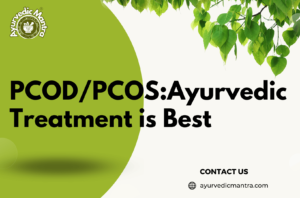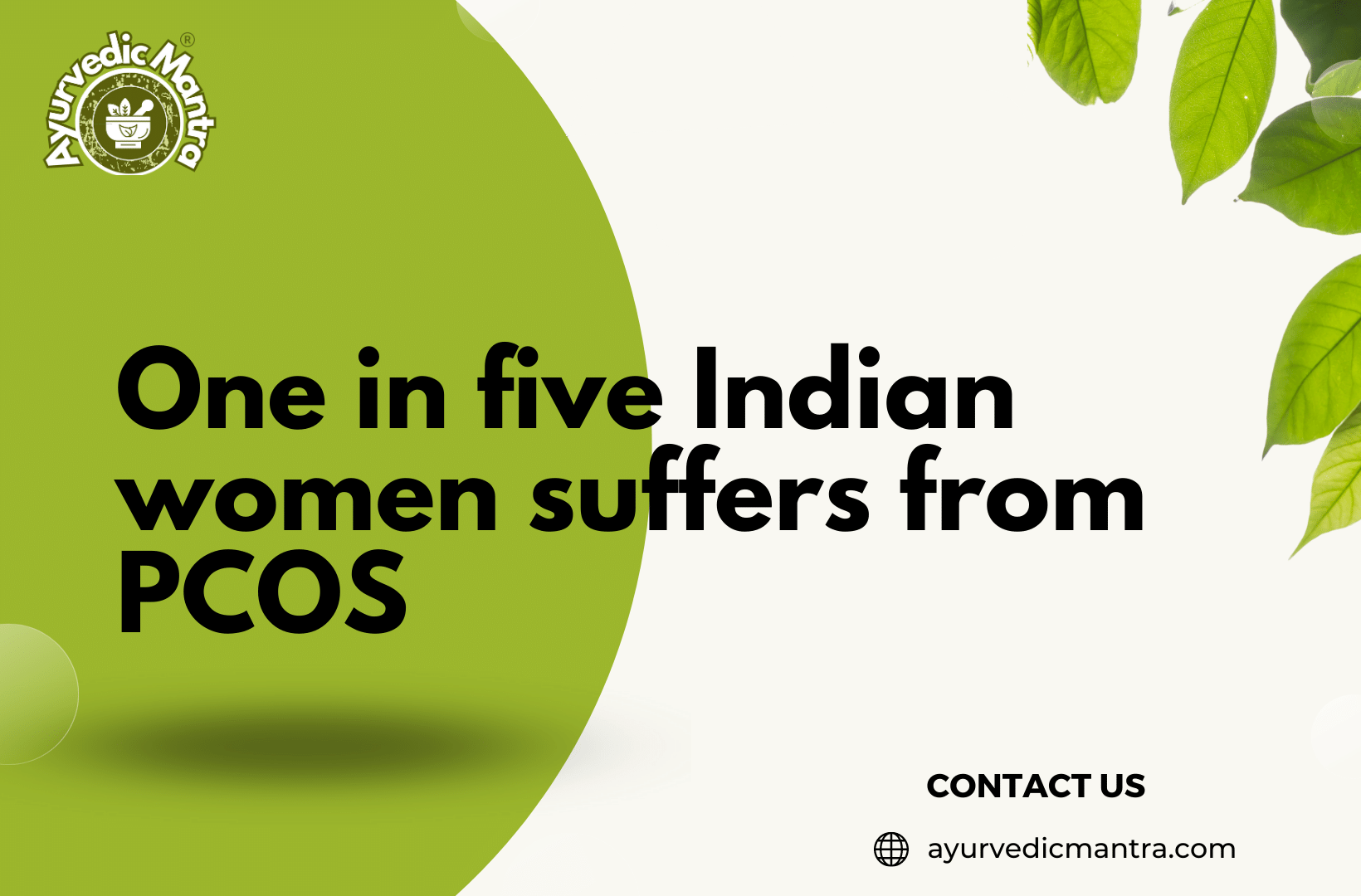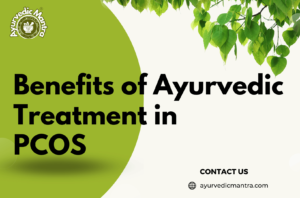
PCOD/PCOS: Ayurvedic Treatment is Best
Introduction Polycystic Ovary Disorder (PCOD) or Polycystic Ovary Syndrome (PCOS) is a common endocrine disorder affecting millions of women worldwide. It leads to hormonal imbalances,


Polycystic Ovary Syndrome (PCOS) is a common hormonal disorder that affects women of reproductive age. It is estimated that one in five Indian women suffer from PCOS, making it a significant health concern in the country. PCOS can profoundly impact a woman’s physical and emotional well-being, affecting various aspects of her life, including fertility, menstrual cycles, and overall health. This article aims to provide a comprehensive overview of PCOS, its causes, symptoms, diagnosis, treatment, and lifestyle management, along with frequently asked questions (FAQs) to help readers better understand this condition.
Polycystic Ovary Syndrome (PCOS) is a hormonal disorder characterized by small cysts on the ovaries, which are fluid-filled sacs. These cysts are immature follicles that fail to release eggs regularly during the menstrual cycle. The exact cause of PCOS is not fully understood, but it is believed to involve a combination of genetic and environmental factors.
The exact causes of PCOS are unclear, but several factors may contribute to its development. These include:
PCOS can manifest with a wide range of symptoms, and the severity can vary from woman to woman. Common symptoms include:
Diagnosing PCOS involves medical history assessment, physical examination, and laboratory tests. Standard diagnostic criteria include:
While there is no cure for PCOS, several treatment options can effectively manage its symptoms and improve a woman’s quality of life. Treatment approaches may include:
FAQs:
PCOS is a chronic condition that does not have a cure. However, with appropriate management, symptoms can be effectively controlled.
There is a genetic component to PCOS, which means it can run in families. If your close relatives have PCOS, your risk of developing the condition may be higher.
Yes, PCOS can be associated with weight gain or difficulty losing weight due to hormonal imbalances and insulin resistance.
Yes, PCOS is a leading cause of female infertility, as irregular ovulation can make it challenging to conceive.
In mild cases of PCOS, lifestyle changes such as regular exercise and a balanced diet may be sufficient to manage symptoms. However, in more severe cases, medical interventions may be necessary.
Hormonal imbalances associated with PCOS can contribute to mood swings, anxiety, and depression.
PCOS is a prevalent hormonal disorder affecting one in five Indian women. Understanding its causes, symptoms, diagnosis, and treatment options is crucial for women affected by this condition. Early diagnosis and appropriate management can significantly improve the quality of life for those with PCOS. By raising awareness and providing accurate information, we hope to support women in managing PCOS effectively and maintaining their overall well-being.

Introduction Polycystic Ovary Disorder (PCOD) or Polycystic Ovary Syndrome (PCOS) is a common endocrine disorder affecting millions of women worldwide. It leads to hormonal imbalances,

Introduction Losing weight is a journey that requires dedication, consistency, and self-care. While there are numerous weight loss techniques out there, not all of them

Polycystic Ovary Syndrome (PCOS) is a hormonal disorder that affects millions of women worldwide. It can lead to various health complications, such as irregular periods,

In recent years, Ayurveda, an ancient system of natural healing originating from India, has gained significant popularity as an alternative approach to treating various health

आजकल वजन बढ़ने और चर्बी की वृद्धि होने की समस्या एक आम समस्या बन गई है। बढ़ते वजन और अतिरिक्त चर्बी के कारण न केवल

प्रस्तावना: आजकल वजन बढ़ने और ओबेसिटी की समस्या एक आम समस्या बन गई है। बढ़ते वजन के कारण न केवल शारीरिक समस्याएं होती हैं, बल्कि
